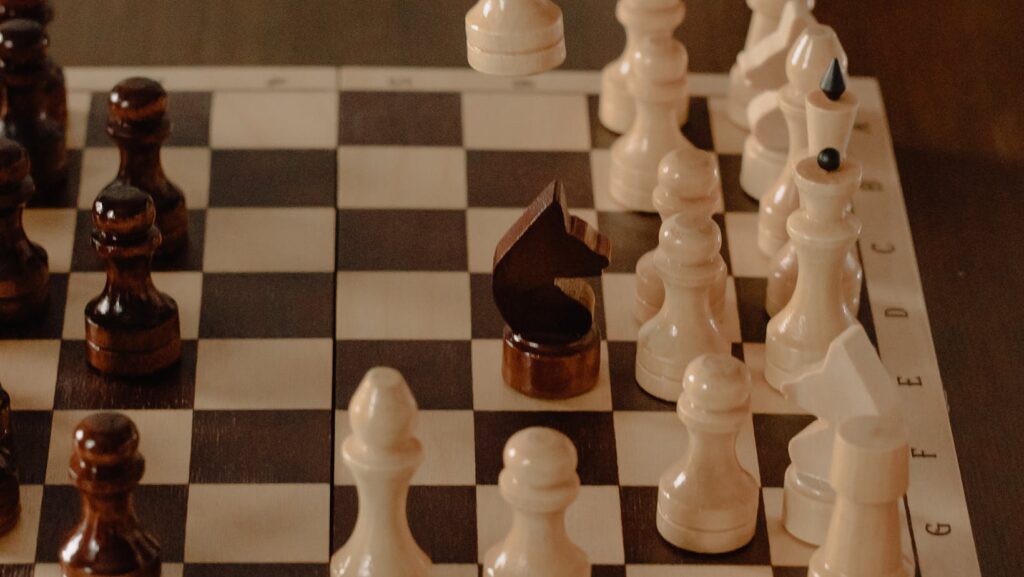The game of kings, chess, has long been celebrated not just as a pastime, but as a mental workout. But does playing chess help you improve your strategic thinking. That’s a question that’s intrigued educators, psychologists, and chess enthusiasts for years.
Does Playing Chess Help You Improve Your Strategic Thinking

As a complex game demanding mental agility and foresight, chess often garners attention when discussing strategic thinking. It’s intriguing to look at chess not just as a game, but as a potential cognitive enhancer, a tool to sharpen strategic thinking.
Does playing chess help you improve your strategic thinking, Chess and strategic thinking share strong correlation. Playing chess necessitates clear planning, in-depth analysis, and informed decision-making. Each move on the chess board involves scrutinizing not only the current position but also the potential outcome of each decision, aligning with the fundamental aspects of strategic thinking. For example, if a chess player considers moving the queen, they must also anticipate their opponent’s potential moves and the subsequent consequences, thereby requiring the same anticipatory and analytical skills used in strategic thinking.
Benefits of Chess on Cognitive Functions
Enhancement of Problem-Solving Abilities
Settings on a chess board symbolize complex matters, prompting players to constantly evaluate scenarios and identify the most beneficial moves. In doing this, they harness their problem-solving abilities, a cognitive function that chess innately cultivates. Moreover, chess players often must formulate a contingency plan in case the original strategy doesn’t unfold as expected, thus promoting a diverse problem-solving mindset.
For instance, a chess study conducted at The University of Memphis revealed that chess players displayed superior problem-solving abilities compared to non-players, reinforcing the notion of chess’s cognitive advantages.
Improvement in Concentration and Focus

Chess elicits a deep level of concentration and focus from its players. Every move matters and can drastically affect the outcome of the game, forcing players to pay undivided attention to the board setup and maintain long periods of intense concentration. As a result, chess tends to enhance players’ ability to focus, further solidifying its cognitive benefits.
A survey conducted at Western Sydney University found that students who played chess displayed heightened levels of focus and concentration as opposed to those who did not play. Therefore, chess not only increases strategic thinking but also contributes impressively to other cognitive functions.
How Chess Skills Translate to Everyday Life
Strategic Planning in Personal and Professional Settings
Strategic planning, a pivotal aspect of chess, is easily transferrable to personal and professional settings. In chess, players use strategies to outmaneuver opponents and make optimal decisions, an approach applicable in many life scenarios. For instance, in career planning, like choosing the right job path, evaluating potential career moves, or negotiating a salary increase, chess principles assist individuals develop comprehensive strategies. Remembering past successes and failures – akin to learning from previous games in chess – can lead to improved strategic planning.
Decision-Making Based on Chess Principles

Chess principles provide a robust framework for the decision-making process. In chess, players must contemplate multiple scenarios, evaluate potential outcomes, and think several moves ahead before making a decision. This logical and strategic thought process aids in everyday decision-making – from choosing an insurance plan to investing in the stock market. For example, an investor might apply the chess principle of risk assessment by considering the potential rewards and drawbacks of a stock before making an investment. This incorporation of chess principles into everyday decision-making not only improves strategic thinking, but also can lead to more sound and rational decisions.
Beyond the Board
Does playing chess help you improve your strategic thinking , Chess isn’t just a game—it’s a brain-building, strategic tool. The cognitive benefits, supported by research, are clear. Chess players often outperform in areas requiring problem-solving and concentration. But the magic of chess doesn’t end on the board. It extends into everyday life. The strategic thinking and decision-making skills honed during the game are transferable.

